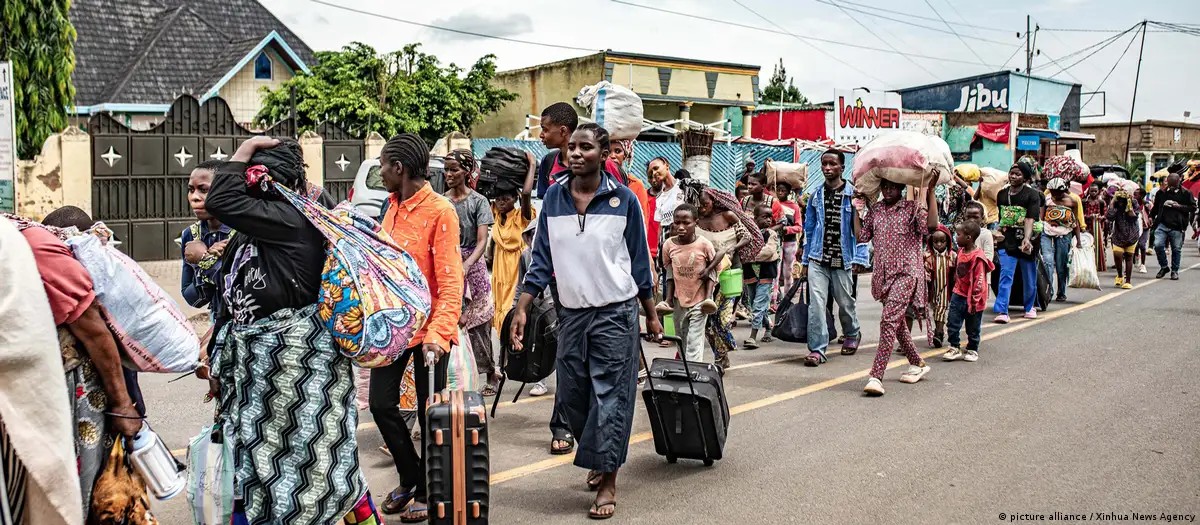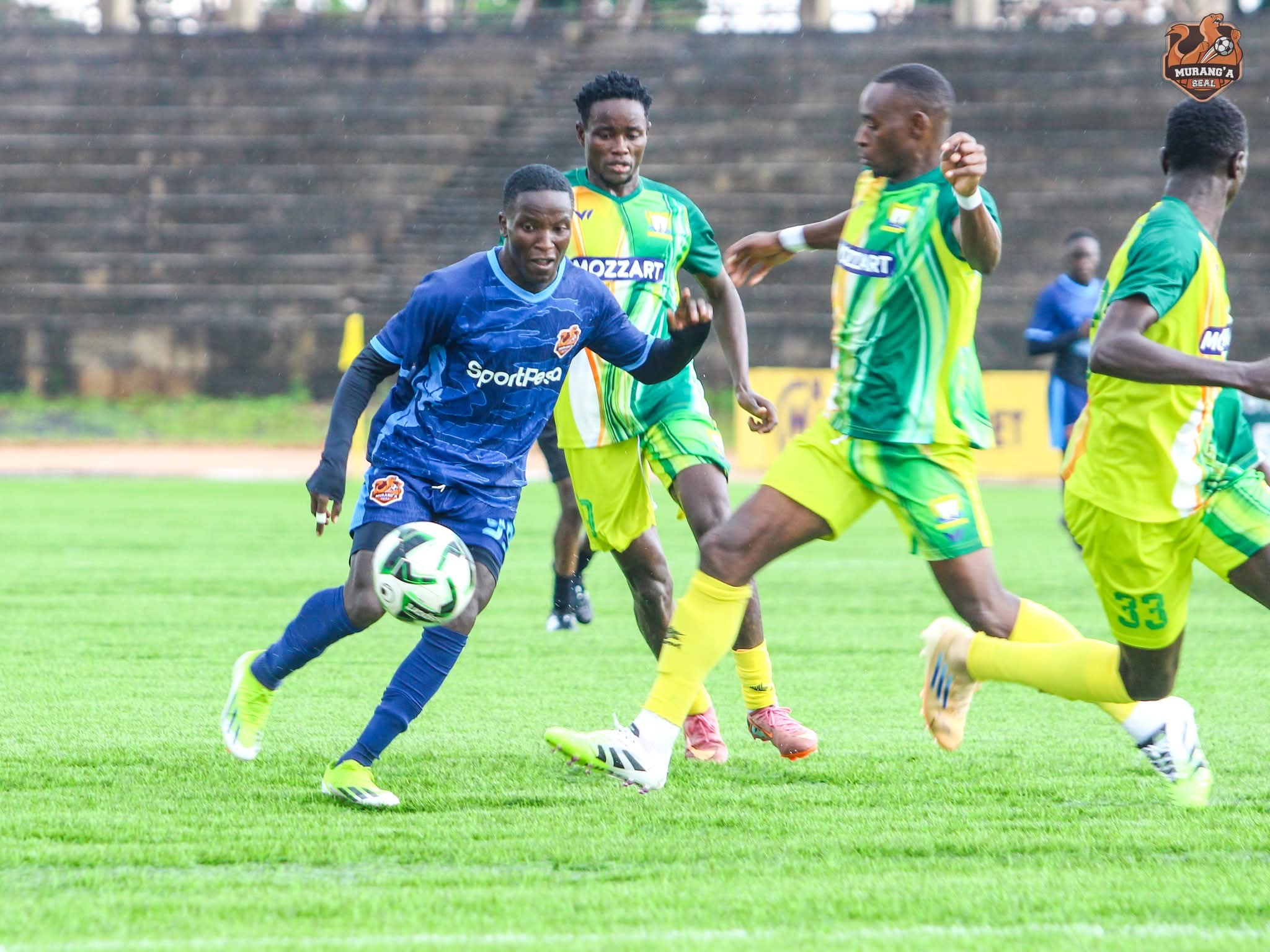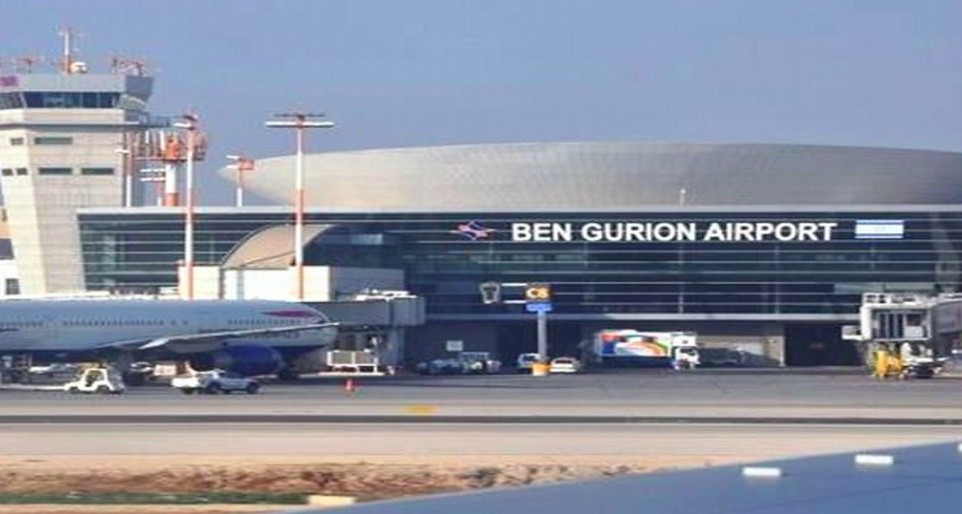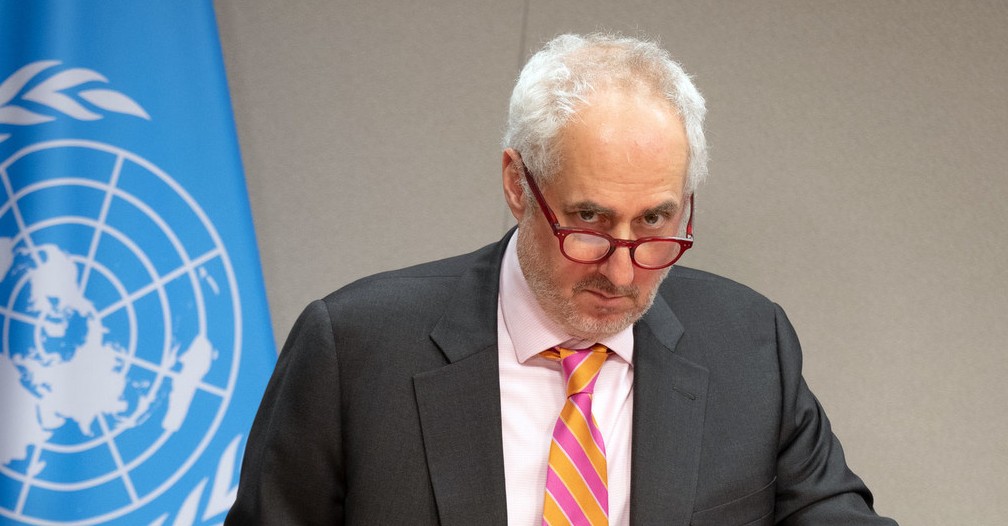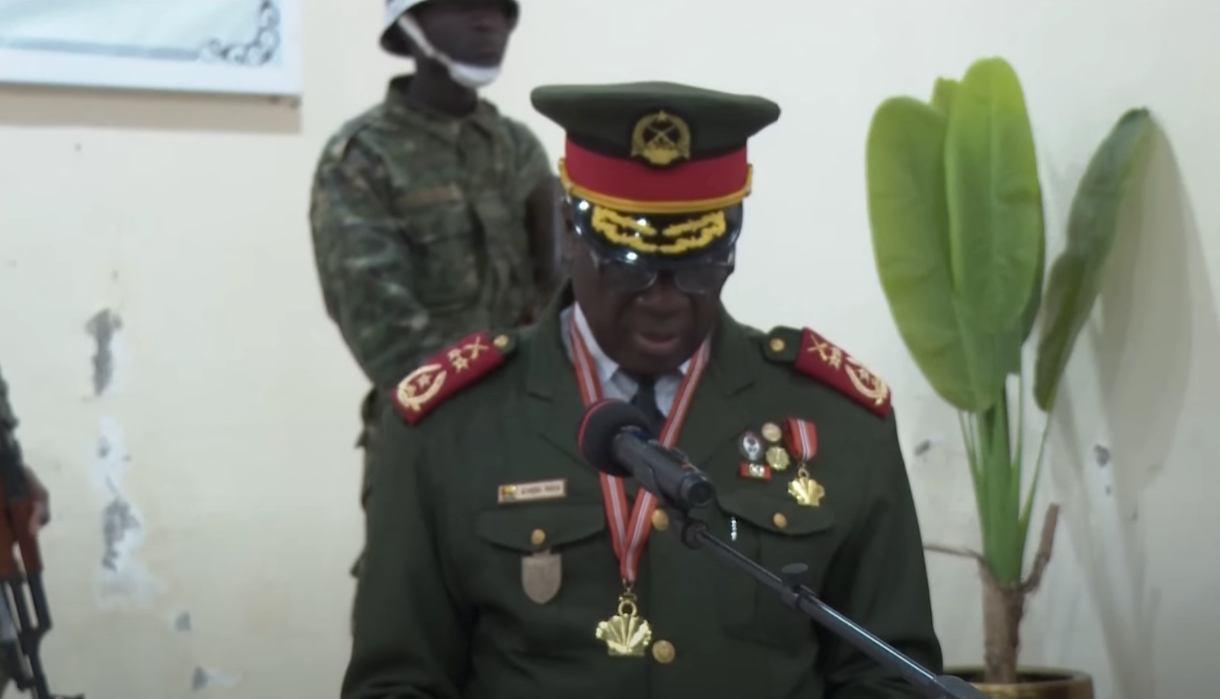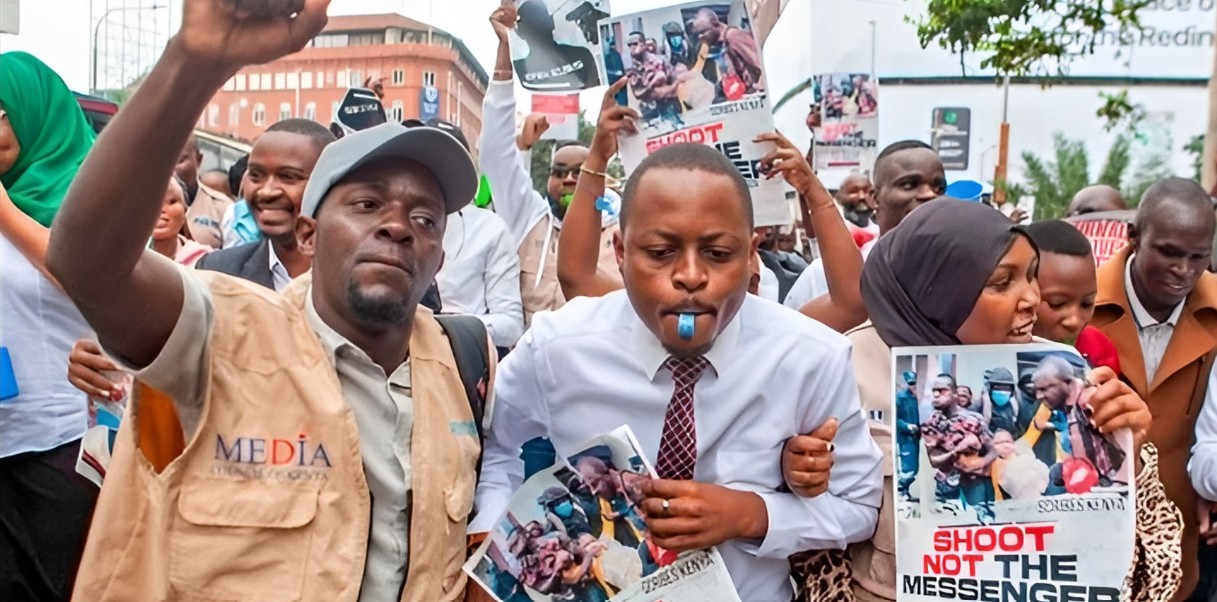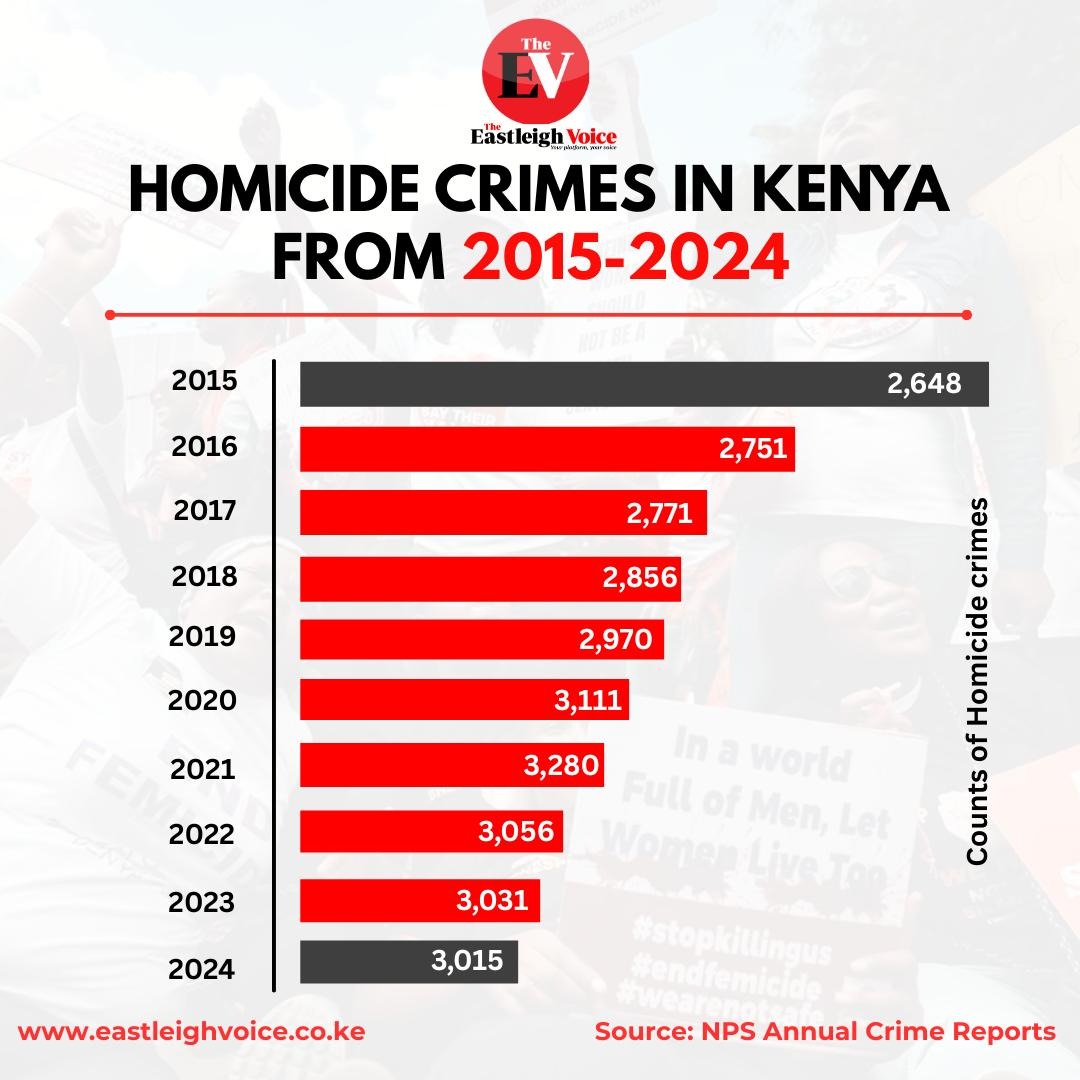Uhuru resurfaces in Berlin as diplomatic feud with Ruto escalates
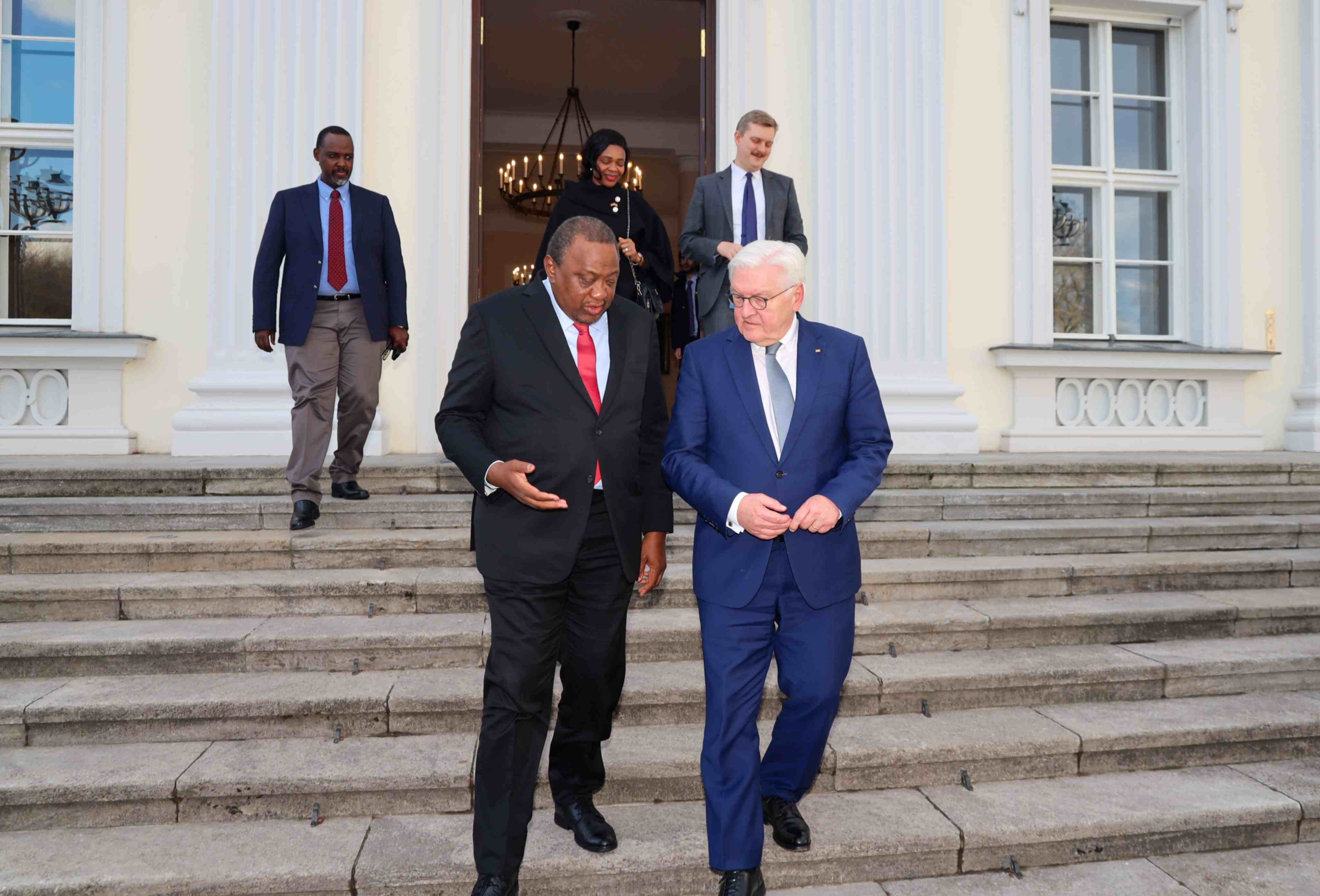
At the heart of the power play was the African Union's Peace and Security Council (PSC) meeting on Friday, where Kenyatta was invited as the EAC peace facilitator for the DRC crisis—only to be quietly sidelined.
Days after his abrupt exit from Addis Ababa, former Kenyan President Uhuru Kenyatta resurfaced in Berlin, seen alongside German President Frank-Walter Steinmeier.
His sudden appearance in Europe follows a storm of speculation that he had worked behind the scenes to de-lobby Raila Odinga's AU Commission (AUC) bid—a claim pushed by allies of both Raila and President William Ruto.
More To Read
- These are the realities of life! Uhuru opens up on his health struggles
- Emotional moment as Uhuru makes private visit to Raila Odinga’s grave in Bondo
- Kenya calls for governance overhaul as EAC gridlock deepens
- Raila blames Gen Z protests on Ruto government’s failure to implement NADCO report
- DRC at 65: Tshisekedi calls for peace on independence day as M23 asserts control in Goma
- Uhuru Kenyatta retained as Jubilee Party leader in fresh leadership shake-up
While Kenyan social media has been awash with theories about Kenyatta's role in Raila's defeat, documents seen by The Eastleigh Voice tell a different story.
Rather than orchestrating Raila's downfall, Kenyatta found himself on the receiving end of political manoeuvring—this time from his successor, President Ruto.
At the heart of the power play was the African Union's Peace and Security Council (PSC) meeting on Friday, where Kenyatta was invited as the EAC peace facilitator for the DRC crisis—only to be quietly sidelined.
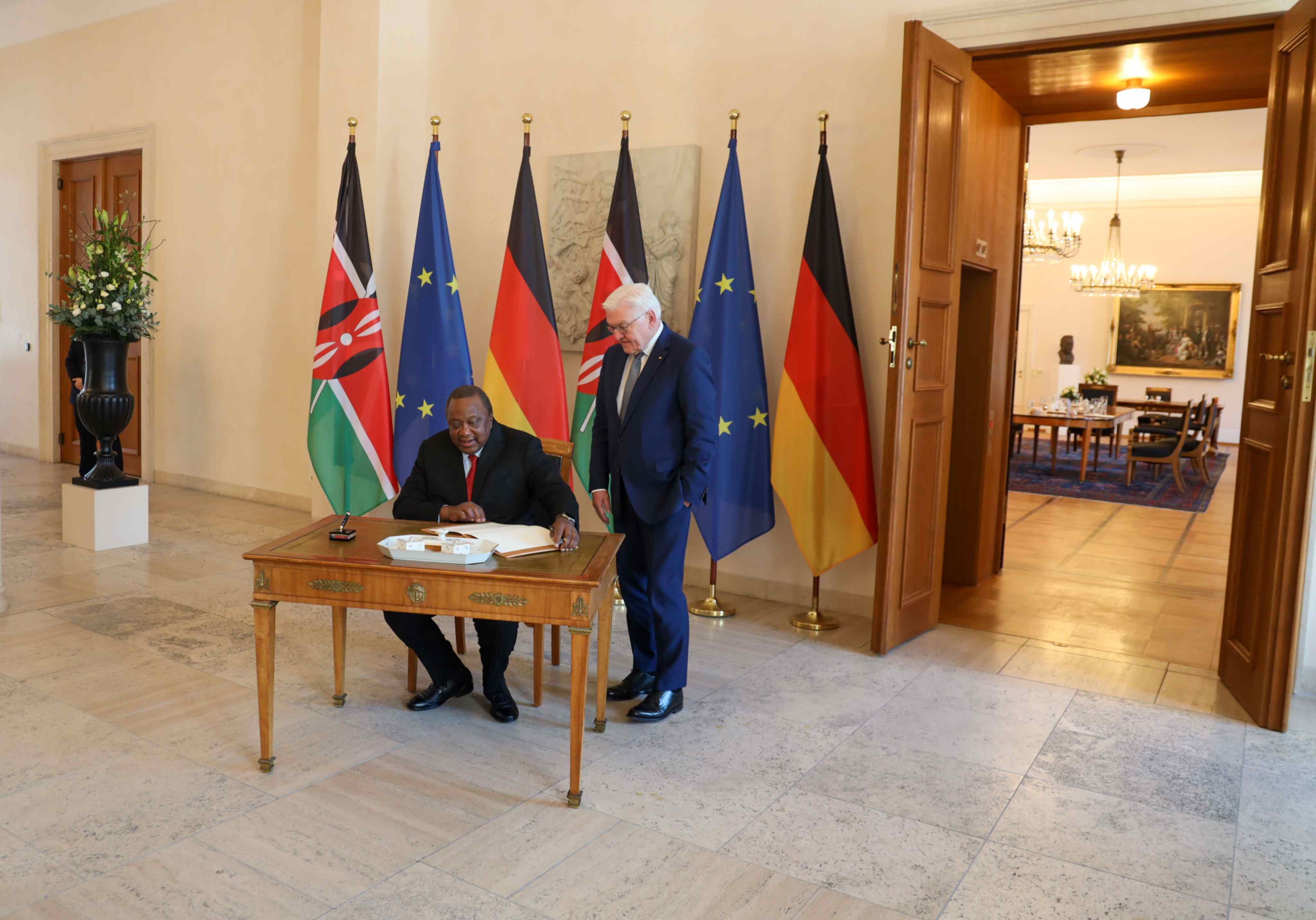 Retired President Uhuru Kenyatta when he paid a courtesy call on German President Frank-Walter Steinmeier at Bellevue Palace in Berlin, Germany on February 17, 2025. (Photo: Office of the 4th President of Kenya)
Retired President Uhuru Kenyatta when he paid a courtesy call on German President Frank-Walter Steinmeier at Bellevue Palace in Berlin, Germany on February 17, 2025. (Photo: Office of the 4th President of Kenya)
The silencing of Uhuru Kenyatta
A February 7, 2025, letter from the AU Commission to Kenya's embassy in Addis Ababa confirmed Kenyatta's formal invitation to brief the AU PSC on the escalating conflict in eastern DRC.
"The Commission wishes to invite H.E. Uhuru Kenyatta, Former President of the Republic of Kenya, and Facilitator of the East Africa Community (EAC)-led Nairobi Process, to attend the meeting and to brief the PSC," the letter stated.
An attached programme showed Kenyatta was scheduled to speak between South African President Cyril Ramaphosa and UN Secretary-General António Guterres—a prime slot that highlighted his relevance in regional peace efforts, especially in eastern DRC.
But when the PSC convened on February 14, Kenyatta was nowhere to be seen.
AU sources confirm that Kenyatta, already in Addis Ababa, left the city abruptly after realising his briefing had been removed from the agenda.
"He did not attend. He left town immediately," a senior AU diplomatic source told The Eastleigh Voice.
The continental security council also confirmed the development to The Eastleigh Voice but declined to disclose details on what transpired or why Kenyatta was sidelined.
Ruto's hand in the snub?
Multiple AU officials suggest President Ruto played a direct role in sidelining Kenyatta.
As Chair of the East African Community (EAC), Ruto holds significant influence over regional diplomatic engagements and appears to have used it to block Kenyatta's participation in the PSC session.
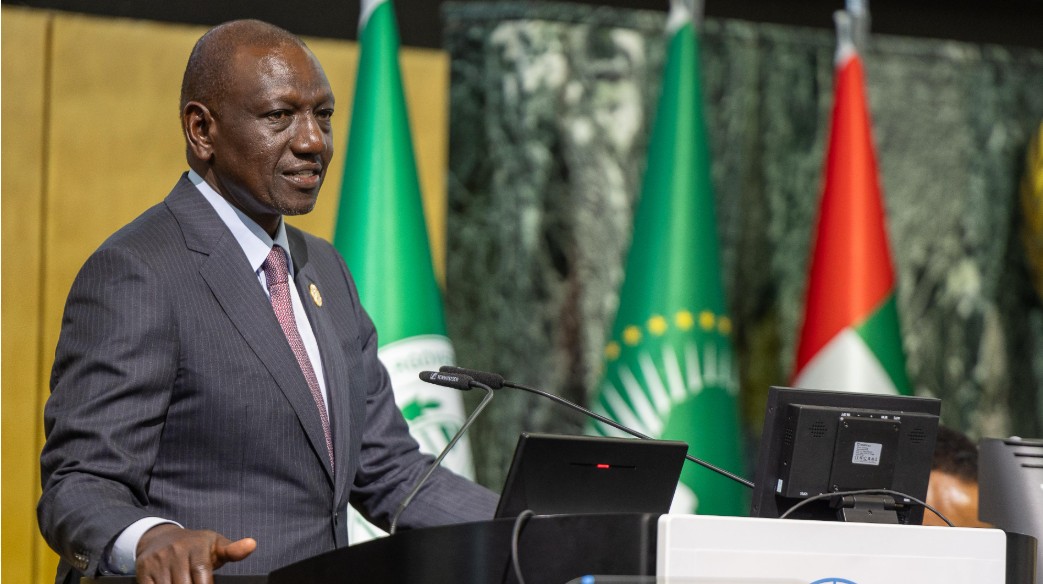 President William Ruto speaks during the High-Level Humanitarian Conference for the People of Sudan in Addis Ababa, Ethiopia on February 14, 2025. (Photo: PCS)
President William Ruto speaks during the High-Level Humanitarian Conference for the People of Sudan in Addis Ababa, Ethiopia on February 14, 2025. (Photo: PCS)
This move is likely to be seen as a strategic effort to cement Ruto's grip on East African peace diplomacy while erasing Kenyatta's influence from the AU's formal discussions.
Kenyatta's Nairobi Process—which facilitated intra-Congolese dialogue—had gained credibility in both African and Western diplomatic circles.
By likely ensuring Kenyatta did not address the AU, Ruto diminished his predecessor's diplomatic standing while reinforcing his own authority in regional security affairs.
Deepening rift over Nairobi, Luanda processes
At the core of this feud is a strategic clash over how to manage the DRC conflict.
• Ruto's Position: Advocates for a merger of the EAC-led Nairobi Process and Angola's Luanda Process, arguing that multiple frameworks create forum shopping and inefficiencies.
• Kenyatta's Position: In his nine-page confidential report to the EAC-SADC Summit in Dar es Salaam, Kenyatta stopped short of endorsing a merger, instead calling for the Nairobi Process to be revived and fully funded.
"The intra-Congolese dialogue (Nairobi Process) must be restarted and fully supported by African Heads of State," Kenyatta's report stated, making it clear that he saw his framework as independent and critical to resolving the DRC crisis.
This fundamental disagreement has now escalated into a diplomatic power struggle—one that played out not just at Dar es Salaam but at the continental stage.
The continental security council also confirmed the development to The Eastleigh Voice but declined to disclose details on what transpired or why Kenyatta was sidelined.
The AU meeting that disintegrated into chaos
While Kenyatta's absence was notable, the AU PSC meeting itself descended into disarray.
A senior AU official told KFP that the session "blew up," and up to now, no report has been officially tabled.
"It was chaotic," the source admitted. "Up to now, no report has been presented."
For a body tasked with setting Africa's security agenda, its inability to produce a formal communiqué raises serious concerns about the AU's ability to manage crises.
The failure suggests that the divisions at the PSC table mirror those within Kenya's own foreign policy establishment.
Kenyatta's Berlin appearance
With Addis Ababa behind him, Kenyatta's sudden appearance in Berlin raises new questions.
His meeting with German President Frank-Walter Steinmeier—whether planned or coincidental—hints at ongoing diplomatic engagements outside AU structures.
While The Eastleigh Voice has yet to confirm the purpose of his visit, what remains clear is that Kenya's diplomatic struggles are no longer just a domestic affair—they are shaping alliances, narratives, and regional power plays far beyond its borders.
Takeaways
The Ruto-Kenyatta rivalry has officially spilled over into Africa's highest diplomatic corridors.
By blocking Kenyatta's PSC briefing, Ruto sent a clear message: Kenya's foreign policy will be shaped by his administration, not his predecessor's legacy.
But as AU divisions deepen, Raila's AUC loss exposes new cracks, and East Africa's security landscape remains fragile, one thing is certain—Kenya's influence in regional diplomacy is at a crossroads, and the power struggle is far from over.
Top Stories Today
